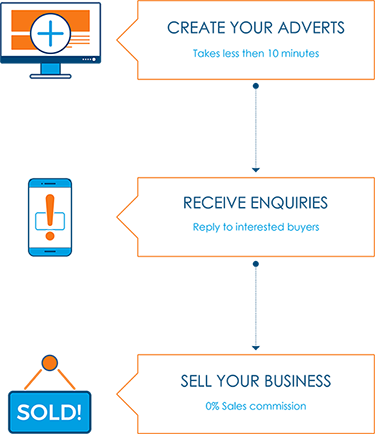Is your business insolvent? Read our guide on what to do…

If you think your business has become insolvent then you find yourself in a fairly serious situation. Many people do not realise that becoming insolvent actually changes your responsibilities as a business owner. You can’t just go on trading in the hope that everything will work out in the end. If the company is insolvent then you must act to maximise the creditors’ interests. That means not incurring further debts that you’re not going to be able to repay. Failure to make this important change could lead to personal liability for the company’s debts.
Is your business insolvent?
As a director of the business, you have a legal requirement to understand whether the business is insolvent. If you have been under increasing pressure from creditors such as HMRC, are struggling to pay your bills or have had a statutory demand or CCJ against your name then your business could well be insolvent.
The two tests you can use are:

1. Can the business pay its debts when they become due? – If you think the company has insufficient cash to pay its liabilities when they are due then you must take action.
2. Is the value of business’s assets outweighed by its liabilities? – If the total sum the business owes is worth more than the value of the assets then the company is insolvent.
What can you do?
If your business fails both of the insolvency tests then your situation is clearly very serious, but it does not necessarily mean the end of your business. There may be a number of options you can consider to prevent its liquidation.
That includes:
• A Company Voluntary Arrangement (CVA) – If making debt repayments is your biggest problem then a Company Voluntary Arrangement (CVA) could be a potential solution. That would allow you to negotiate new terms on existing agreements with suppliers to repay your debts in monthly payments spread over a period of up to five years.
• Alternative sources of finance – Equally, if the business is otherwise viable but you’re suffering from a cash-flow shortage resulting from a late payment from a customer, there may be alternative funding options available to you that could free up the cash you need to continue. For example, invoice finance could be a potential solution.
• Sell assets or use them as collateral for a loan – Does the business have assets that are not essential to its operation that you could sell to raise money to pay your bills? Selling equipment, vehicles or buildings and potentially leasing or renting instead could give you access to the money you need to continue operating without impacting your ability to trade. Alternatively, perhaps those assets could be used as collateral to obtain approval for a secured loan.
Is selling the business an option?

If you decide to sell your struggling business then the best course of action is to do so quickly before the business becomes insolvent. Once it becomes insolvent, the options that remain to rescue the business are limited and that impacts its saleability. The value of the business will also fall and it could be difficult to find a buyer.
If you do plan to sell the business then it’s essential you get valuations on a liquidation basis and as a going concern as this will inform your position and help you negotiate a suitable sale price. Buyers of struggling businesses are few and far between, but there could be some interest based on the type of business, the current market and the business’s assets.
If the sale of the business as a going concern cannot be achieved, the business will have to be closed and its assets sold. The proceeds will be used to pay the liquidator’s fees and repay the creditors. Any remaining money will be paid to the shareholders. Seek advice and consider your options carefully
If you believe your business is insolvent and are not sure how to proceed then you should seek professional advice immediately. At this stage, prioritising and decision-making is paramount, so consulting a turnaround specialist or an insolvency practitioner is a must.
This article was written by, Tony Smith, a Director at Company Debt. Company Debt is a leading insolvency advice firm in the UK. Tony has a wealth of knowledge and experience in the insolvency sector and the firm provides help and support to struggling businesses, as well as free advice on the options available to SMEs, when insolvent.


